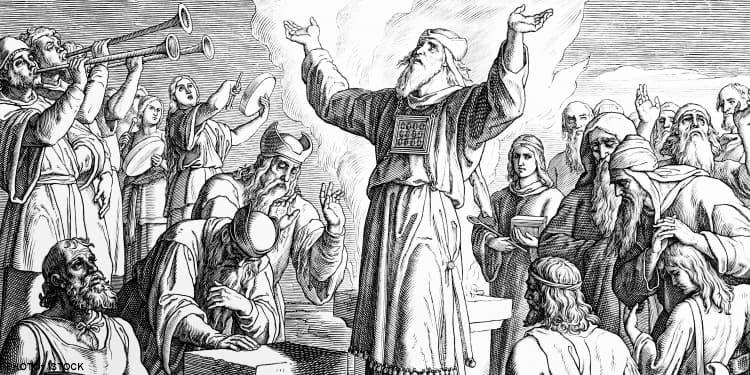Our Future Is Built on the Past
Yael Eckstein | February 8, 2022

…and fasten them on the shoulder pieces of the ephod as memorial stones for the sons of Israel. Aaron is to bear the names on his shoulders as a memorial before the LORD. — Exodus 28:12
Each week in synagogue, Jews read through the Torah from Genesis to Deuteronomy. This week’s Torah portion is Tetzaveh, which means “contributions,” from Exodus 27:20-30:10.
The great 18th-century Irish philosopher Edmund Burke once wrote, “People will not look forward to posterity who never look backward to their ancestors.” As a Jew, this statement really struck a chord. Jewish customs and traditions place a great emphasis on recalling and personalizing the history of our people going back thousands of years. More to the point, we include mention of our ancestors every time we worship and pray to God.
To cite a few examples, we begin each of our three daily prayers by calling upon, “our God and the God of our fathers, God of Abraham, God of Isaac, and God of Jacob.” We remind ourselves of the Exodus from Egypt in various prayers that we say throughout the day, including the Grace After Meals each time we eat. In short, identification with history plays a big role in Jewish prayer life.
I think that Edmund Burke got it right. The glorious future that God promised us in the Bible is built upon our history going all the way back to our great forefathers of faith. If we forget about the past, we have no future.
Our Future Is Built on the Past
In this week’s Torah portion, we read the instructions for the special clothing that Aaron as the High Priest would wear when serving in the Tabernacle. One of the garments was called the ephod, an apron-like garment with shoulder straps. On the front of the ephod was mounted a breastplate.
Among the instructions for making the ephod in this week’s Torah portion is that there were to be two onyx stones mounted on the shoulder straps, one stone on each shoulder. Each stone was to be engraved with the names of six of the twelve tribes, so that all twelve names were engraved on the two stones. The Bible refers to these stones as “memorial stones.”
The message of the ephod’s “memorial stones” is powerful. The High Priest, who represented all of Israel in worship to God, had to carry the names of the ancestors of Israel on his shoulders. Just as this served as a constant reminder of Israel’s ancestors for the High Priest, it is also a reminder for us that our faith and our future are built on the past.
Just like Aaron and all the High Priests, when we come before God to pray and worship Him, we never forget those who came before us. Our relationship to God and His covenantal promises is built upon the greatness of all who came before us.
Your Turn:
Who are the ancestors of faith in your life? Set aside a few moments of prayer and worship to thank God for all that He has done for those who came before you.
